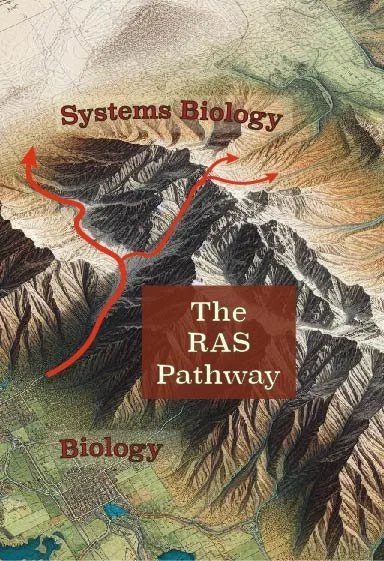The RAS pathway provides our passage from traditional biology to systems biology.
The ultimate goal for our research journey is to establish a more powerful understanding of disease.
Systems biology aims to transform biology into a quantitative science where experimental observations are understood on the basis of fundamental principles and mathematical extrapolations from those principles.
However, the complexity of biology has proven to be a nearly insurmountable obstacle that has impeded these transformation efforts.
The RAS pathway has been a major focus of traditional experimental biology.
The products of those studies provide information and resources that will provide passage through the obstacles that have hindered the advancement of systems biology.
Advantages of the RAS pathway as a focus for systems biology studies:
Exceptionally well-characterized components
Well-established experimental systems
Readily available reagents
Numerous observable, important, systems-level phenomenon
Our previous work demonstrates that systems biology goals can be achieved with the RAS pathway.
Mathematical modeling has long been believed to be an essential component of systems biology, but it has been difficult to make truly predictive models of biological systems.
With respect to the RAS pathway, we have successfully developed models that are truly predictive, that offer non-obvious insights, and that have been experimentally validated.

